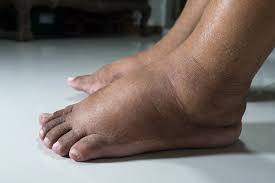Diabetes is a chronic condition that affects the way your body processes glucose (sugar), which is the main source of energy for the body's cells. There are two main types of diabetes: Type 1 diabetes and Type 2 diabetes. In both types, the body has problems regulating blood sugar levels, which can lead to a range of complications if not properly managed.
Type 1 diabetes:
Type 1 diabetes is an autoimmune condition in which the immune system attacks and destroys the insulin-producing cells in the pancreas, leading to a lack of insulin production. Insulin is a hormone that allows glucose to enter cells and be used for energy. Type 1 diabetes usually develops in children or young adults, although it can occur at any age. The exact cause of type 1 diabetes is not known, but it is believed to be a combination of genetic and environmental factors.
Symptoms of type 1 diabetes include increased thirst and urination, fatigue, blurred vision, unexplained weight loss, and frequent infections. Treatment for type 1 diabetes involves daily insulin injections or the use of an insulin pump to regulate blood sugar levels.
Type 2 diabetes:
Type 2 diabetes is the most common form of diabetes, accounting for about 90% of all cases. In type 2 diabetes, the body becomes resistant to insulin or doesn't produce enough insulin to meet the body's needs. Risk factors for type 2 diabetes include being overweight or obese, having a family history of diabetes, and being physically inactive.
Symptoms of type 2 diabetes include increased thirst and urination, fatigue, blurred vision, slow-healing wounds, and tingling or numbness in the hands or feet. Treatment for type 2 diabetes typically involves lifestyle changes, such as a healthy diet and regular exercise, and medication, such as metformin or insulin.
Gestational diabetes:
Gestational diabetes is a type of diabetes that develops during pregnancy. It usually goes away after the baby is born, but women who develop gestational diabetes are at higher risk of developing type 2 diabetes later in life. Gestational diabetes is treated with diet and exercise, and sometimes with medication.
Complications:
Complications of diabetes can include heart disease, stroke, kidney damage, nerve damage, eye damage, foot damage, and skin conditions. Good diabetes management, including blood sugar control, regular check-ups with a healthcare provider, and lifestyle changes such as healthy eating and exercise, can help reduce the risk of complications.
In summary, diabetes is a chronic condition that affects the way the body processes glucose. There are two main types, Type 1 and Type 2, as well as gestational diabetes that occurs during pregnancy. Symptoms can include increased thirst and urination, fatigue, and blurred vision. Treatment typically involves a combination of lifestyle changes and medication to manage blood sugar levels and prevent complications.



No comments yet
Be the first to share your thoughts!